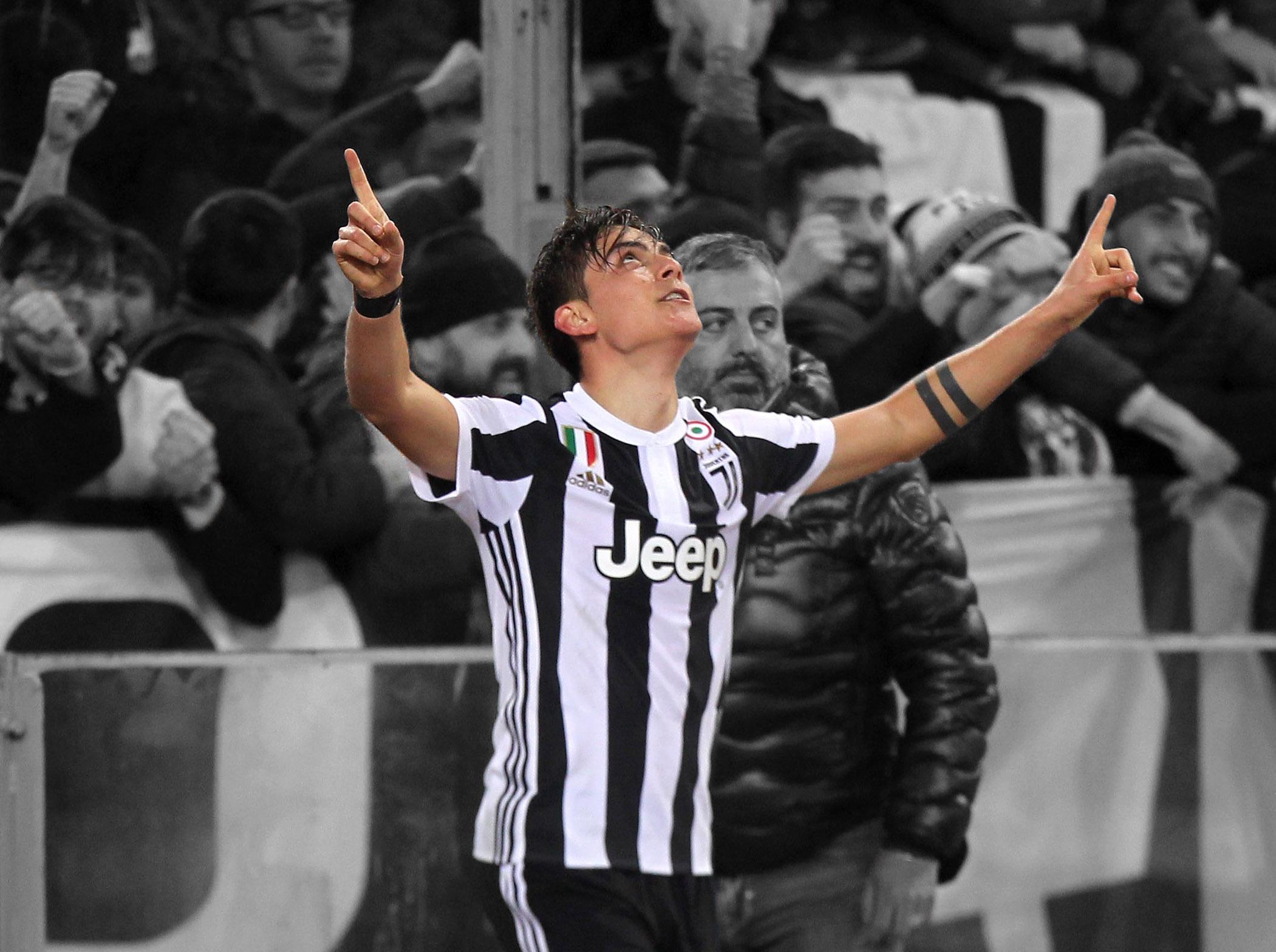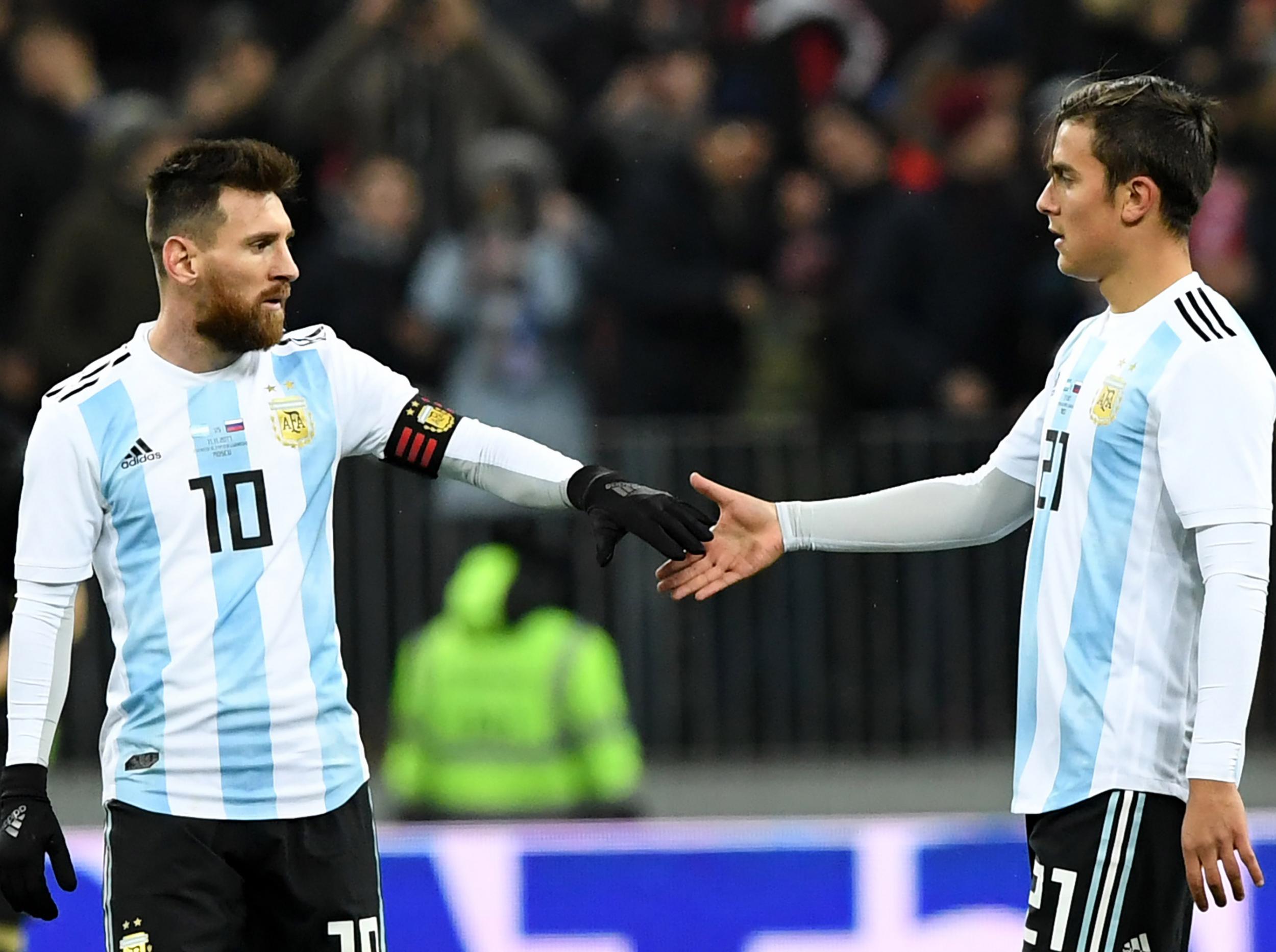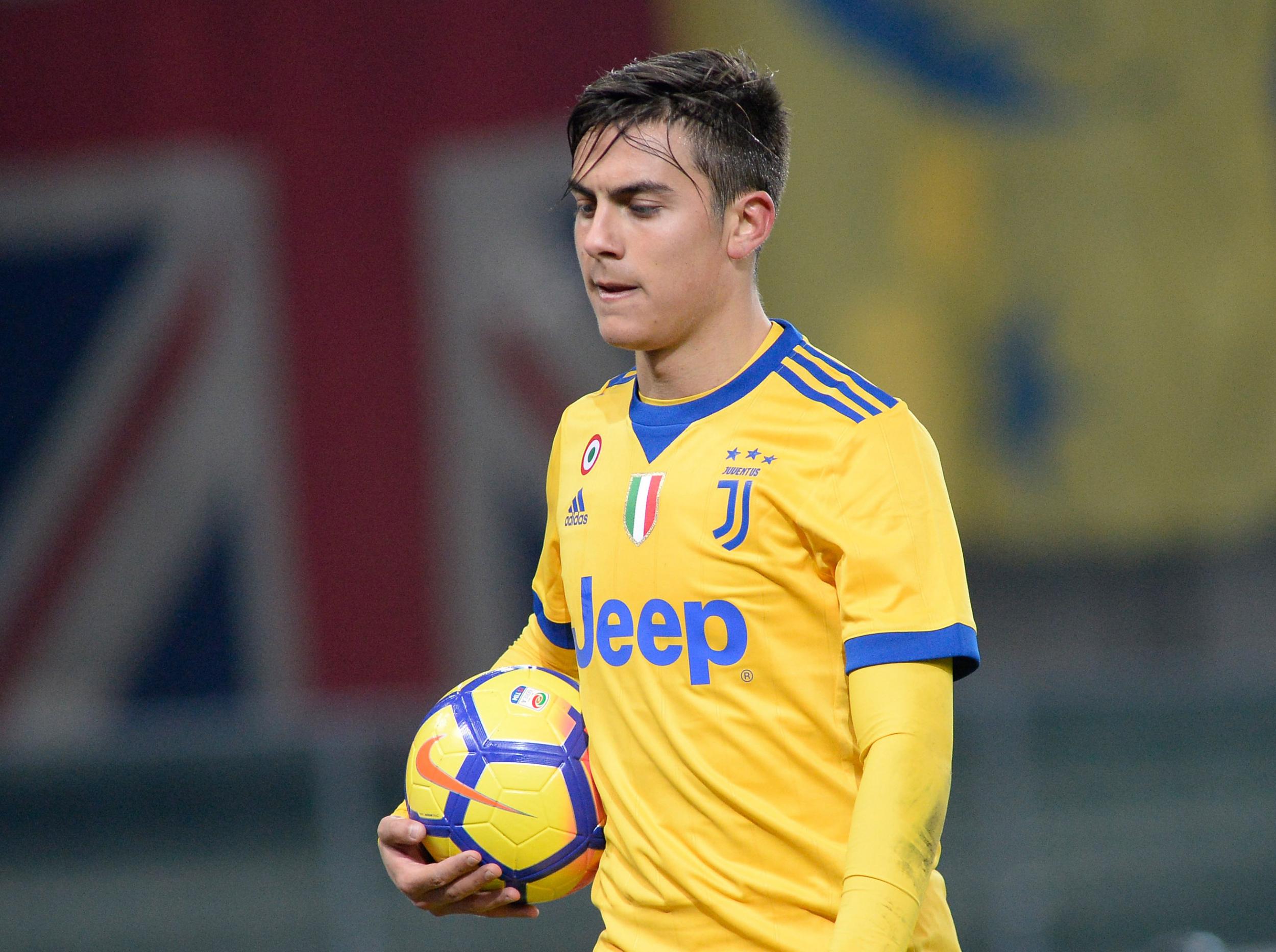Paulo Dybala: After a season of troubles, Lionel Messi’s heir apparent has his life back on track in time for Tottenham
The Argentine’s goalscoring return to the first team comes just in time to face Spurs, where Juve hoping the fruits of his off-field reconciliations will be bore

He’s falling. His legs are giving way. The sheer effort of holding off Marco Parolo, a man four inches taller and seven kilograms heavier than him, has cost him his balance. His shoulders are braced right, where Parolo is; his feet are splaying to the left, where the ball is. Gravity is winning.
Paulo Dybala’s last hope, in the fractions of a second before he sprawls to the turf and the chance is lost, is that he can swing his left boot through the ball with enough precision to divert it towards goal from a narrowing angle, and enough power to beat the goalkeeper from 12 yards out. The clock shows 92:28. The score is 0-0.
And as Dybala’s falling, the ball is rising. Rising from his left boot with a weight and a pace that it should not be possible to generate from that stance. From that angle. From a player making his first start for two months after injury, in the 93rd minute of the game, in what is essentially a seated position.
The ball carries on rising until it hits the top corner of the net. By the time it has rippled back down to the ground, Dybala is on his feet again. The clock shows 92:30, Juventus have just taken the lead against Lazio, and a 40-year-old Gianluigi Buffon has run over 100 yards to celebrate with the Juventus fans at the other end of the stadium. It is a goal that may ultimately hand Juventus their seventh scudetto in succession. The player they call ‘La Joya’ - The Jewel - is back.
Dybala’s injury-time winner on Saturday evening was the sort of goal that encapsulates how Juventus like to see themselves as a club: gritty and yet beautiful, functional and yet artful, inexorable and yet unapologetically theatrical. Dybala himself seems to embody many of these same qualities: you know he’s coming, it’s just a question of when, and how, and how big.
The Argentinian forward missed the first leg of the Champions League tie against Tottenham Hotspur, a 2-2 draw in Turin. His scheduled return for the second, at Wembley on Wednesday night, is perhaps the main reason why Tottenham’s slender advantage may be no advantage at all. For as commendably as Spurs played in Turin, a game with Dybala in it is an entirely different sort of game.
“With the ball, he's a genius,” reckons team-mate Blaise Matuidi, another Juve player who will return for the second leg. “At his best, he is unplayable,” says his manager Massimiliano Allegri. “Once Cristiano Ronaldo and Lionel Messi have retired, I have no doubt it will be Neymar and Dybala who are the best in the world.”
The Messi comparisons are perhaps inevitable, given his provenance, given his stature, given that spurt of pace and that beacon of a left foot. They will most likely continue to hound him, perhaps even haunt him, despite the fact that in style and temperament a much more appropriate comparison would be Sergio Aguero or even Carlos Tevez, who Dybala was signed to replace in 2015. But at their heart, perhaps, lies something more profound.
At the turn of the century, Juventus were the second richest club in the world, behind Manchester United. Then came the 2006 Calciopoli match-fixing scandal, which saw them relegated to Serie B and lose many of their star players. And though they subsequently fought their way back on the pitch, winning six straight league titles and reaching the Champions League final in 2015 and 2017, in terms of finance and stature they are still fighting to recover their place in European football’s very top tier.

Like any club outside the VVIP circle in European football’s age of state power, Juventus remain vulnerable to predators. The world-record sale of Paul Pogba to Manchester United in 2016 could be rationalised on the basis that the numbers made sense, and the club seemed happy enough to let him go. But generally speaking, superclubs do not sell their big names. Superclubs keep hold of their superstars. And superclubs do not go 22 years without a European Cup.
It is against this context of decay and renaissance, then, that the rise of Dybala must be seen. Even the decision to hand him the No10 shirt - the shirt worn by Omar Sivori, Michel Platini, Roberto Baggio and Alessandro del Piero - was one freighted with symbolism. This is a club that demands domination, a club that dreams in dynasties, a club desperate to anoint a Messianic saviour of its very own.
And so Dybala’s significance goes far beyond a mere position or tactical role. At the age of just 24, he is being invested with the task of restoring Juventus to its rightful place in the game: not simply a talisman, but the one true heir to a sacred bloodline.
The first sign that things were not progressing quite as planned came shortly after Dybala and his Juventus team-mates were mauled 4-1 by Real Madrid in the Champions League final in Cardiff. Over the summer, Dybala broke up with his long-term girlfriend Antonella, a business student who he had been dating for three years, since his time at Palermo.
Then, in September, Dybala ditched his long-term agent Pierpaolo Triulzi and replaced him with his brother Gustavo. At first, the fear in Turin was that the Barcelona-based Gustavo would try and engineer a move to Spain. And as Dybala’s form began to dip in the autumn after a fine start to the season, the Italian press began to suggest that Dybala’s brother was holding up contract talks, touting him around the big European clubs ahead of the January window, generally making a nuisance of himself.
In December, in the midst of a run of just two goals in 18 games, the club made its strongest statement yet. Club legend Pavel Nedved, now a vice-president and hugely influential figure at Juve, publicly warned Dybala to knuckle down, telling him to “give his all in training” and “make sacrifices in his private life” if he wanted to be “truly great”. It was a move that received the tacit backing of Allegri, who warned Dybala to “stay focused” and dropped him for a key game against Inter Milan. To compound the issue, Dybala then suffered a hamstring injury against Cagliari on the cusp of the winter break.
On the face of things, it looked like the first major crisis of Dybala’s career. For the first time in years, they were in a proper title race, with Napoli surging into the lead. And yet Juve’s irritation with their star player was partly a reflection of their own simmering angst, a recognition of just how heavily they relied on a fully-fit, fully-firing Dybala.
In a sense, the Argentinian has been a victim of his own versatility, expected not simply to score goals in industrial quantities, but to provide much of the creative burden in a team without a natural playmaker in the final third. At the same time Allegri’s tactical tinkering, switching between 3-5-2, 4-2-3-1 and 4-3-3 depending on opponent, has occasionally forced him out of his favoured No10 position.

But perhaps the biggest demand on Dybala is temperamental. Juventus rely on him to seize moments, to dictate big games, to offer up the moments of opportunistic genius that you need when you are a team based as much on sturdy defence as irresistible attack. And for the first time, people began to argue that Dybala was still missing the immaculate sense of occasion that distinguishes the truly elite.
Which is why Dybala’s goal against Lazio meant so much: not a definitive answer to his critics, perhaps, but one hell of a riposte nonetheless. He is still feeling his way back to full fitness, and was left out of Jorge Sampaoli’s most recent Argentina squad (most remarkably of all, Dybala is yet to score at international level). But with a Serie A title race to reignite, a Champions League tie to rescue and a World Cup to play for this summer, Dybala’s return could scarcely have been better timed.
Though Dybala has had many doubters over recent months, you would struggle to find many in the Juventus dressing room, where he has become an increasingly pivotal figure. “Dybala was the first player who welcomed me when I got here,” said Douglas Costa last week. “He opened the door to Juventus, he helped me so much. Now I consider him a great friend.” And as if to complete the circle of life, Dybala has recently been seen in public again with Antonella, fuelling rumours of a reconciliation.
Dybala is just one of the reasons for Tottenham to be worried this Wednesday. Matuidi, an effortlessly kinetic central midfielder with the movement of a centre forward, the danger sensors of a centre-half and the fast-twitch sprint of a winger, will be back too. And though Tottenham will still be favourites to make the last eight, to get there they will have to negotiate a very different-looking Juventus side to the one they faced in Turin.
And for all Tottenham’s dominance in the first leg, it’s important to remember that Juventus were just a missed penalty by Gonzalo Higuain away from going 3-1 up and very possibly making the tie safe. Dybala, had he been fit, would most likely have taken the kick. At Wembley, with the weight of expectation braced against his shoulders, and Juventus’ Champions League dreams on the brink of falling, he will finally get his chance.
Join our commenting forum
Join thought-provoking conversations, follow other Independent readers and see their replies
Comments